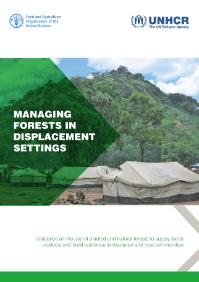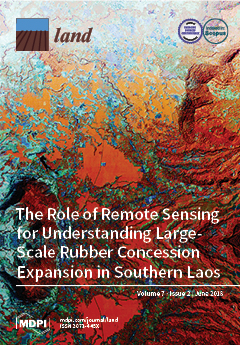Managing forests in displacement settings
The massive increase in demand for woodfuel for cooking caused by sudden influxes of refugees and other displaced people is usually the main driver of forest degradation and deforestation in displacement settings. It places enormous pressure on nearby forests and woodlands and is often a source of tension between the host and displaced communities. A lack of sufficient cooking fuel also has an impact on the nutrition and health of vulnerable people in such settings.



